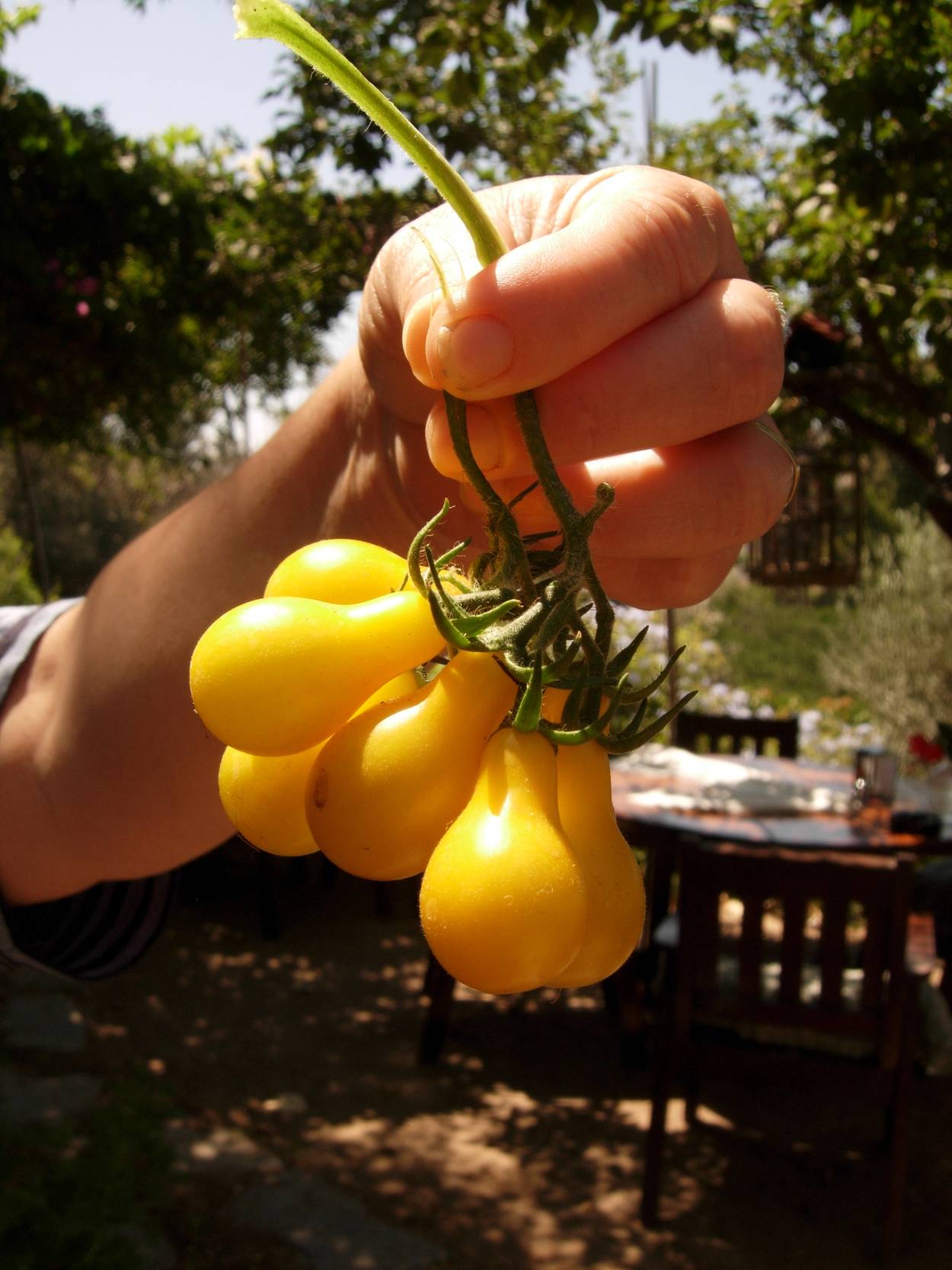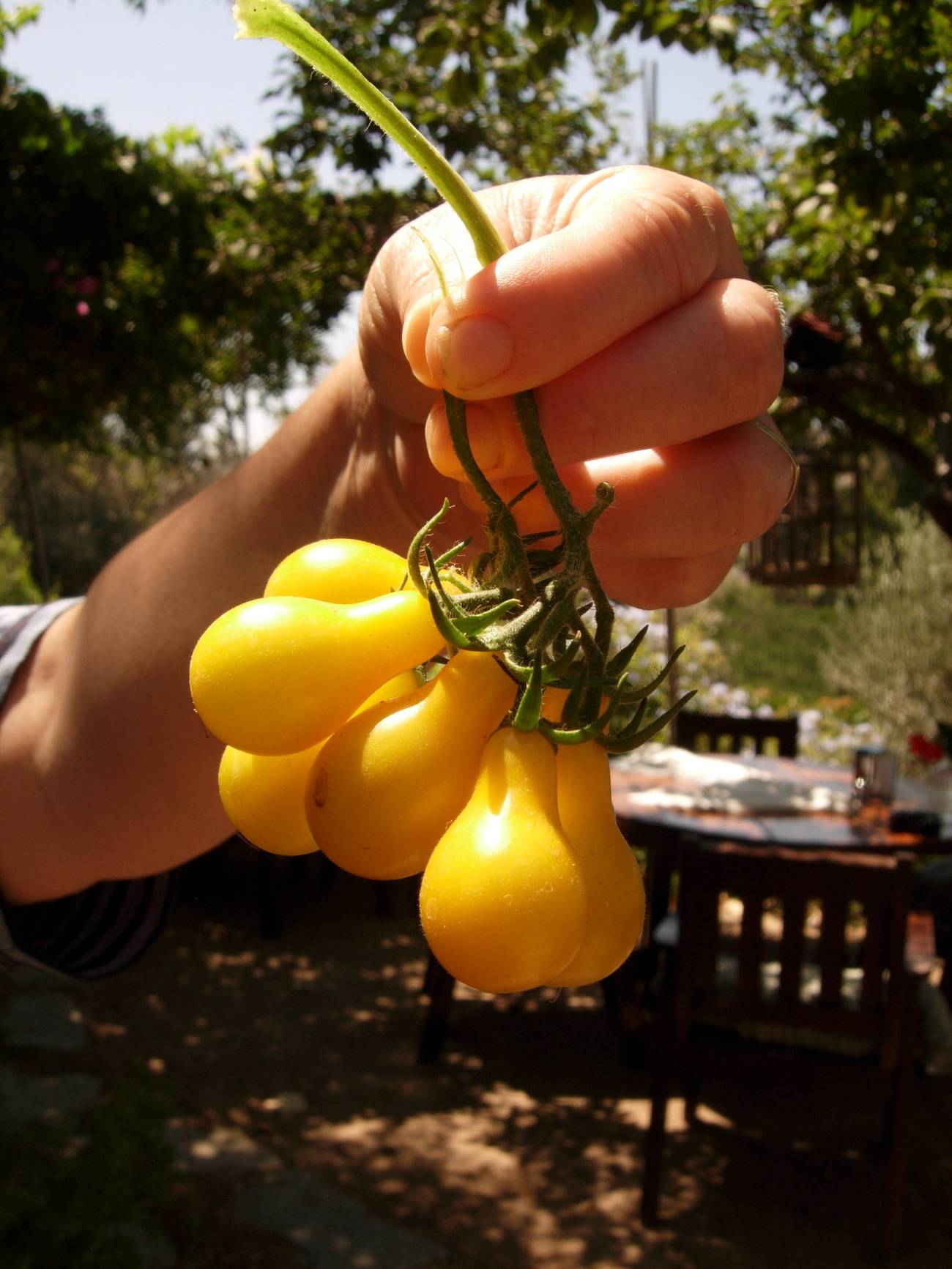Back to the Land
By connecting us with ancient Jewish traditions, gardening feeds our souls as well as our bodies




The first time I picked and ate a cherry tomato from my own garden, I thought, “I can’t believe I made that myself.”
Let’s be clear: I’m not much of a farmer. All I have is a postage-stamp backyard behind my suburban Toronto townhouse. But every year as the weather starts to turn warmer, I feel called—by a force larger than myself—to start turning over the soil of my postage stamp and preparing it for planting.
I fell in love with gardening belatedly, even though it has always been a part of my life. Growing up, my dad always had a garden, and I can remember helping him prepare the soil and form rows in which to plant sunflowers, green beans, tomatoes, zucchini, squash. (So much squash!) I liked being outside and getting my hands dirty, but I mostly thought of it as something that my dad did, not something I did.
I didn’t think much about gardening for the first two decades of adulthood. In fact, if you had asked me during my 20s or 30s, I would have told you that I was bad at keeping plants alive. (“Pets and kids, no problem. But plants are doomed around here.”) Anyway, I was busy building a career and raising a family. Who had time for backyard gardening? It wasn’t until after my divorce a few years ago that this began to change. Maybe it was the little bit of free time that came along with half-time parenting, or the need to get through some of the harder moments when the kids weren’t with me. Maybe it was an attempt at “finding myself,” that process of individuation and self-discovery that so often follows a major life change. Either way, I returned to the soil.
In that first year I kept it simple: I filled some pots with soil and threw in some green beans (which grew like crazy) and tomatoes (which yielded nothing because, it turns out, you have to plant them much earlier in the season). The next year I added some infrastructure: a small garden with cedar edges. Three years later, having added a little bit of gardening space each year since, I now grow about 15 species of vegetables, berries, and herbs in four small gardens. It turns out I could keep plants alive; and it turns out I was yearning for the soil.
I think that what I was, and am still, yearning for is a sense of wellness and connection. I regularly worry that my modern lifestyle is unhealthy, disconnected, filled with stress. My job is demanding and fast-paced. I stare at screens for a lot of my day. I have an enormous to-do list, and spend a lot of time answering emails, making phone calls, and typing on a laptop. It’s challenging and rewarding, but it’s enough to make both my head and my soul hurt by the end of the day.
When I work in my garden, I can feel those stressors melt away. Out in the yard, there are no screens, no Wi-Fi, no phone calls or deadlines. There’s just me and the soil and the fresh air. In that sense, gardening is an act of mindfulness—a commitment to be in the moment, to put aside everything that life demands and simply to be present with the earth, with the plants, and with myself.
Here’s my confession: I could stare at my garden for hours—at the little yellow flowers that mean a tomato is coming soon, at the shape of the spinach leaves, the arc of the climbing beans, the slowly expanding head of cauliflower in the midst of sweeping green leaves. It fills me with thanks, and it evokes in me a sense of awe: I can’t believe I grew that. I can’t believe there was nothing there six weeks ago, and now there’s an entire plant. I can’t believe the earth yields produce to sustain us, and that I get to be a part of that incredible process.
That sense of awe at the wonder and beauty of nature is very Jewish. In fact, Jewish tradition has always connected agriculture with worship. Our earliest holidays—Passover, Sukkot, and Shavuot—were all harvest festivals, and our earliest recorded mode of prayer essentially involved offering produce to God at the Temple. The fact that early Jewish ritual was so produce-oriented indicates that our ancestors found a sense of God’s presence in the soil, and in the act of growing food from the earth. This is an idea that has flowered (pun intended) in nearly every area of Jewish life. In liturgy: One of the primary blessings of the daily Amidah asks God to bless “this year and its yield.” In storytelling: The Rabbis teach in Midrash Bereshit Rabbah 1:3 that “every single blade of grass has an angel in the heavens telling it to grow.” In Hasidic thought: Rebbe Nachman of Bratzlav was said to pray outdoors every day, seeking God among the growing things.
The 20th-century philosopher Rabbi Abraham Joshua Heschel—whose thought is heavily influenced by Hasidic thinking—taught that the goal of Jewish life is to live with “radical amazement.” With a sense of “the interweaving of all, the holding together of what is apart, the love that hovers over acts of kindness, mountains, flowers, which shine in their splendour as if looked at by God,” he writes in Man Is Not Alone. This radical amazement—this astonishment that the world even exists—is a reminder to us that we human beings are born of and sustained by the earth. In our higher moments it also compels us to want to repair the brokenness of our world. In other words, the sense of awe is what makes us fully human: It connects us with one another, with our planet, and with the possibility of our best selves.
Which means that the cherry tomato I picked from my backyard is more than just a piece of fruit (or a vegetable, depending on how you define it). It is a symbol of connectedness, a source of awe, a reminder that as a human being I was born of this earth and have a responsibility to try to heal it. All that in a little tomato. It’s no wonder I can’t stop staring at my garden.
A return to the soil is a return to our earliest Jewish roots and to our very humanity. It teaches us that Jewish spirituality is found not only in prayer books and Torah scrolls, but also in the earth beneath our feet and the dirt beneath our fingernails. Working the land has the potential to be an antidote to life’s stresses, a bubble of calm in the rushing river of modern life. Above all, it is a reminder that there is still much in this world to be inspired by.
Micah Streiffer is a rabbi, writer, musician and teacher based in Toronto. He serves as spiritual leader of Kol Ami Congregation in Thornhill, Ontario, and is the host of the weekly 'Seven Minute Torah' podcast.